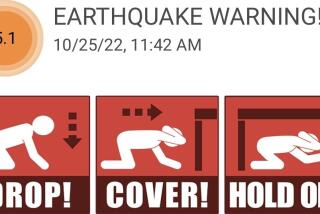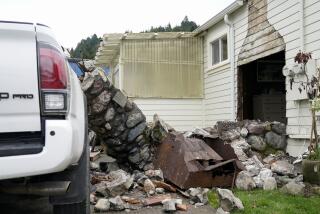It’s a bird, it’s a plane, no ... it’s the space station
You get sales alerts, Twitter alerts, sports alerts and Facebook alerts. Now you can also get an alert when the International Space Station is visible overhead thanks to NASA’s new Web app Spot the Station.
The International Space Station’s orbit 200 miles above Earth makes it visible to more than 90% of the Earth’s population, NASA said. The trick is knowing when to look for it.
NASA’s Johnson Space Center already calculates the sighting information several times a week for more than 4,600 locations worldwide. With its new Web app, it is just sharing that information with the space-obsessed public.
As long as you know where to look, the International Space Station is pretty easy to see, NASA said. It is the third-brightest object in the sky after the sun and the moon, and it looks like a fast moving point of light about the size and brightness of the planet Venus.
If you sign up for the newly released Web app, you’ll get an alert via email or on your mobile device a few hours before the International Space Station will be visible from your neighborhood. NASA said it will only alert users of the app when conditions are ripe for good International Space Station viewing -- like when the ISS is more than 40 degrees high in the sky and when the viewing will last long enough that you’ll be sure to catch it.
The Space Station is typically visible at dawn and dusk, and you can tell the alert system to tell you just about morning viewings or evening viewings. Or both.
The International Space Station just celebrated 12 years of manned orbit 200 miles above the Earth.
ALSO:
The $329 iPad mini costs $198 to make, study says
Instagram becomes more like Facebook with ‘Web profiles’
Apple loses ground in tablet market; Samsung and Amazon gain
More to Read
Inside the business of entertainment
The Wide Shot brings you news, analysis and insights on everything from streaming wars to production — and what it all means for the future.
You may occasionally receive promotional content from the Los Angeles Times.











